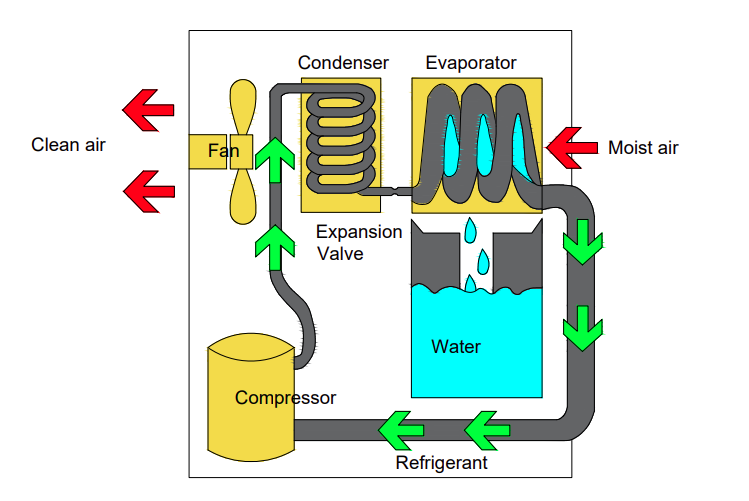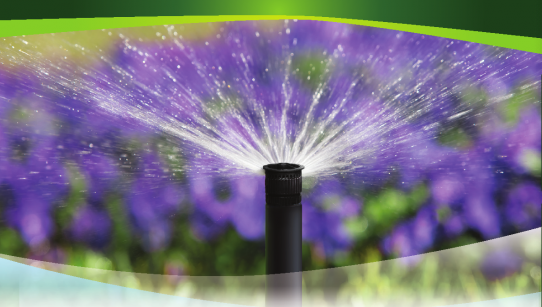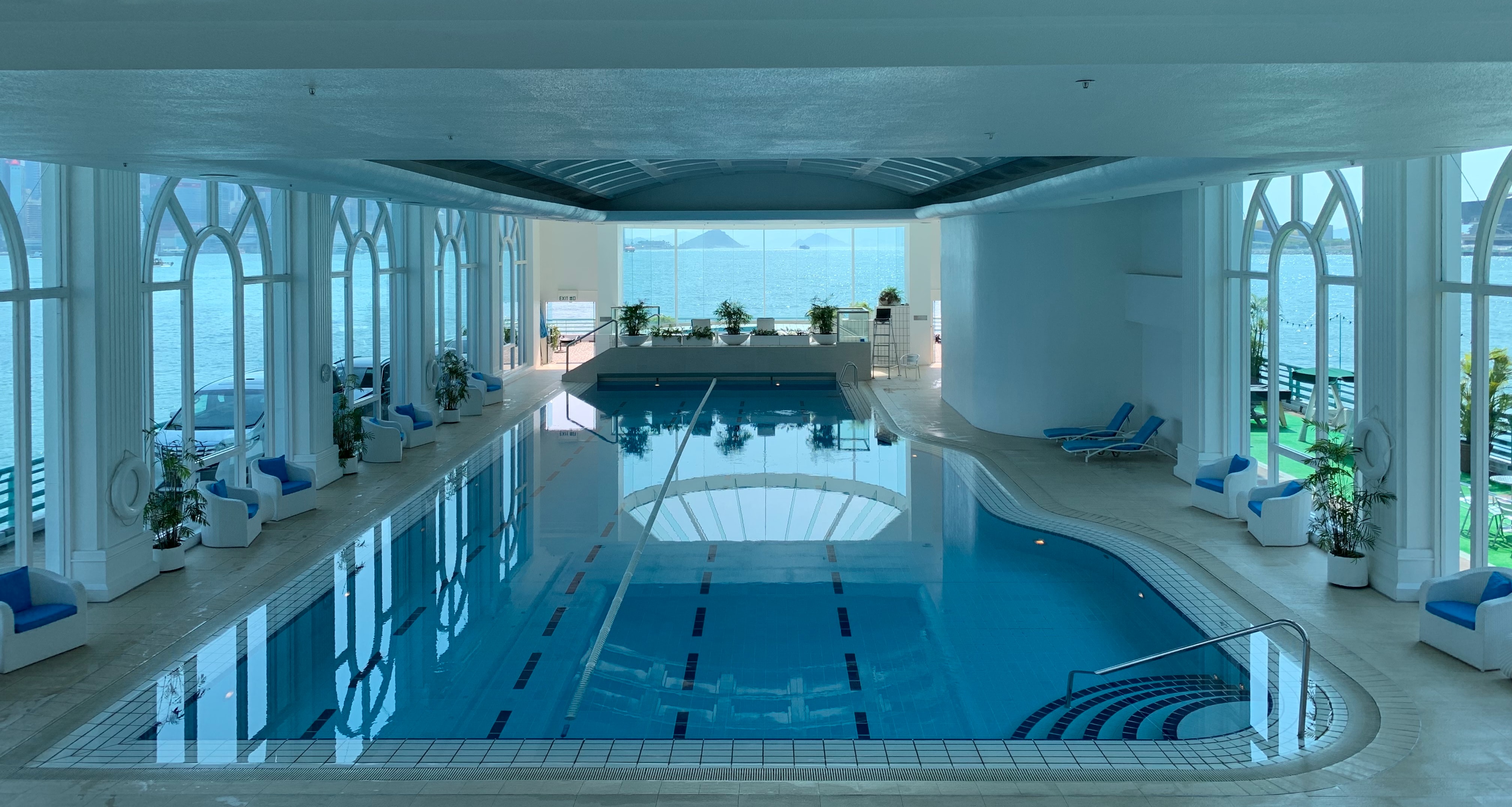The Ultimate Solution for Indoor Pool Humidity: Dehumidifiers
Are you tired of dealing with high humidity and water damage in your indoor pool area? If so, then keep reading
Indoor swimming pools are a luxurious addition to any home, but they come with a hidden enemy: humidity. Excess moisture in the air can lead to a host of problems, from mold and mildew to corrosion and musty odours. But don't worry, there's a solution! By incorporating a dehumidifier into your indoor swimming pool set-up, you can conquer humidity and create the perfect environment for your swims. In this blog, we'll dive into the reasons why using a dehumidifier with your indoor swimming pool is a must-have, and how it can improve your indoor swimming experience in ways you never thought possible.
Why do indoor
swimming pools generate high levels of humidity?
You might have noticed that your indoor pool area is often damp and humid. That's because the heated water in the pool evaporates and turns into moisture in the air, creating an environment that promotes the growth of mold and mildew. This not only damages the pool area but can also lead to health problems for swimmers. The moisture in the air condenses on cool surfaces like windows, walls, and floors, causing water damage and making the indoor pool area feel stuffy and uncomfortable. So, it's essential to maintain the proper humidity levels in the indoor pool area, and a dehumidifier can help you do just that.
Impact of
indoor pool humidity on health, comfort, and appearance of the space.
- Allergies
and respiratory problems: High humidity levels can lead to the growth of mold
and mildew, which can release allergens and irritants into the air,
triggering allergies and respiratory problems such as asthma, hay fever,
and other allergies.
- Uncomfortable
environment: Excessive humidity levels can make the indoor pool area feel
stuffy, clammy, and uncomfortable. This can negatively impact your
enjoyment of the pool and reduce the amount of time you spend in the area.
- Health
hazards: In addition to the allergens and irritants produced by mold and
mildew, high humidity levels can also create an ideal environment for
other harmful microorganisms, such as bacteria and viruses, to thrive.
- Damage to the pool area: High humidity levels can cause damage to the walls, flooring, and other surfaces in the indoor pool area by promoting the growth of mold and mildew and causing wood and other materials to warp and rot.
Why should
you use a dehumidifier along with an indoor pool?
- Improved
air quality: By removing excess moisture from the air, a dehumidifier can
help to reduce musty odours and improve the overall air quality in an
indoor pool area. This is especially important in environments with high
levels of humidity, where mold, mildew, and bacteria can thrive.
- Reduced
mold and mildew growth: Excess humidity can create the ideal conditions
for mold and mildew to grow, leading to health problems and potential
structural damage to your home. A dehumidifier can help to reduce the risk
of mold and mildew growth by keeping the air dry.
- Prevents Corrosion: High humidity levels can cause metal surfaces to corrode, leading to rust and other damage. A dehumidifier can prevent corrosion from occurring, preserving the longevity and appearance of your indoor pool area.
How does a
dehumidifier work?
If you're wondering how a dehumidifier works to solve the
problems caused by excess moisture in the air, then let me break it down for
you. First, the dehumidifier pulls in humid air from the room. Once inside, the
air is subjected to a refrigerant process that removes the excess moisture,
leaving behind dry air. Finally, the dehumidifier circulates the dry air back
into the room. Sounds simple, right? Keep reading for a more detailed
explanation of how a dehumidifier removes moisture from the air and why it's an
essential addition to your indoor swimming pool area.
The basic components of a dehumidifier include a fan, a
cooling coil, a refrigerant, a compressor, an expansion valve, a reheating
coil, and a storage tank. The fan pulls in humid air and blows it over the evaporator
coil. The evaporator coil (cooling coil) is cooled by a refrigerant, which
absorbs heat and moisture from the air as it passes over the coils. This causes
the moisture to condense on the coils and form droplets, which are then drained
away. The refrigerant then flows to the compressor and the compressor is
responsible for compressing the refrigerant and circulating it through the
system.
The expansion valve regulates refrigerant flow from the
compressor to the condenser coil, helping maintain the desired temperature.
After the humid air has been cooled and dehumidified, it is reheated by the condenser
(reheat coil) to restore it to its original temperature. This helps prevent
abrupt temperature changes and ensures that the air feels comfortable. The
collected moisture is stored in a tank and can be emptied as needed.

Reducing
Energy and Maintenance Costs with a Dehumidifier
Excess humidity can cause numerous problems, including
making it difficult to regulate the temperature, leading to increased use of
heating and cooling systems. This, in turn, leads to higher energy costs. A
dehumidifier can help to reduce these costs by controlling the humidity levels
and maintaining a more stable temperature in the indoor pool area.
Not only that, but excess humidity can also lead to
condensation on windows, walls, and other surfaces, which can cause water
damage and damage to equipment in the pool area. With a dehumidifier, you can
prevent condensation from forming and extend the lifespan of the equipment in
the pool area. So not only can a dehumidifier save you money on energy costs,
but it can also protect your investment in your indoor pool.
If you have an indoor swimming pool, you need to have a
dehumidifier to manage the high levels of humidity that come with it.
Dehumidifiers are essential to maintaining a clean, safe, and comfortable
indoor pool environment. They help to improve air quality, reduce mold and
mildew growth, save energy, and protect your investment. By investing in a
quality dehumidifier, you can enjoy all the benefits of an indoor pool without
worrying about the negative effects of excess humidity.











No comments yet